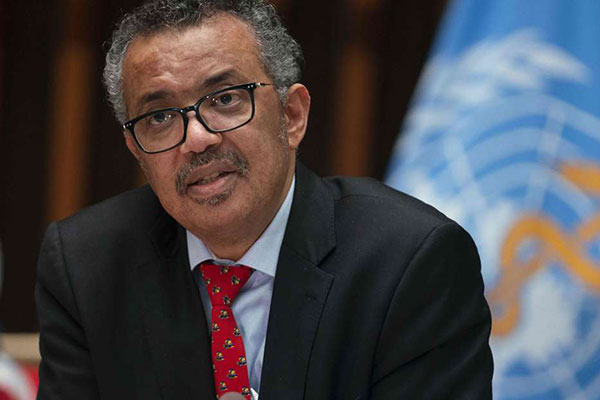The World Health Organisation (WHO) has temporarily suspended trials of hydroxychloroquine from its global study into experimental Covid-19 treatments, saying that its experts need to review all available evidence to date.
But on Monday, WHO said the suspension was informed by safety concerns for Covid-19 patients. Naturally, hydroxychloroquine is a medication used to prevent and treat malaria in areas where the mosquito-borne disease remains sensitive to chloroquine.
RISKS TO PATIENTS
Speaking on Monday, WHO Director-General Tedros Adhanom Ghebreyesus said that in light of a paper published last week in the Lancet that showed people taking hydroxychloroquine were at a higher risk of death and heart problems, there would be “a temporary pause” on the hydroxychloroquine arm of its global clinical trial.
“The executive group has implemented a temporary pause of the hydroxychloroquine arm within the Solidarity trial while the safety data is reviewed by the data safety monitoring board,” Tedros said during the Monday online briefing.
MALARIA TREATMENT
The drug, also referred to as HCQ, is an approved treatment for malaria and autoimmune diseases like rheumatoid arthritis, lupus, and a type of blood disorder that affects the skin known as Porphyria cutanea tarda (PCT).
“The other arms of the trial are continuing,” added Dr Tedros.
The global trial termed Solidarity trial is being carried out in several countries across the world with Kenyan researchers joining their international counterparts in the search for a cure for Covid-19. There are plans for clinical trials for three drugs.
Other treatments in the WHO’s Solidarity trial, including the experimental drug remdesivir and a combination therapy of two HIV drugs – lopinavir and ritonavir – are still being pursued.
ANIMAL STUDIES
The drugs are being studied because they have all shown some evidence of effectiveness against the SARS-CoV 2 virus, which causes Covid-19, either in cells (in vitro) and or animal studies.
Hydroxychloroquine has been touted by US President Donald Trump and others as a possible treatment for the disease caused by the coronavirus.
The US National Institutes of Health is also running a clinical trial to establish whether the drug, administered with the antibiotic azithromycin, can prevent hospital admissions and death from Covid-19.
The WHO previously recommended against using hydroxychloroquine to treat or prevent coronavirus infections, except as part of clinical trials.
Dr Mike Ryan, the head of the WHO emergencies programme, said the decision to suspend trials of hydroxychloroquine had been taken out of “an abundance of caution”.
